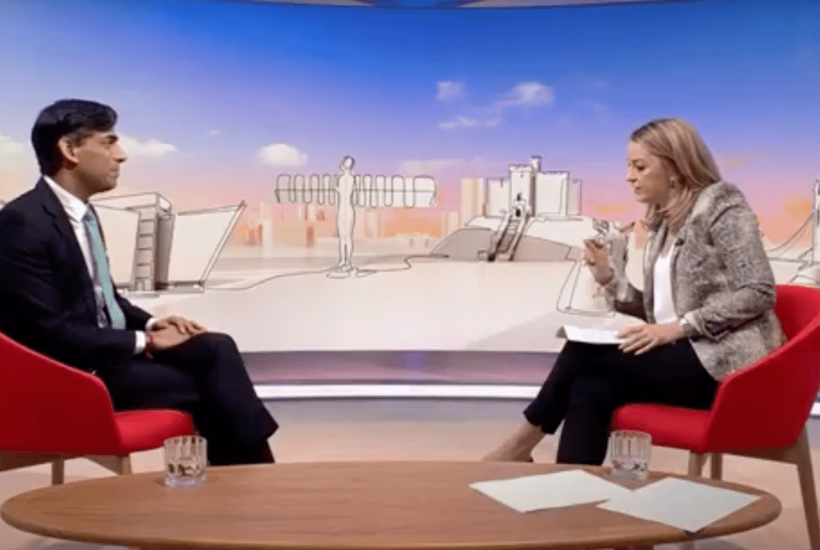Does Rishi Sunak believe in Rwanda?
An election year has begun, with Rishi Sunak still struggling in the polls and continuing to face great challenges home and abroad. His first appearance of the year on Sunday with Laura Kuenssberg didn’t get off to an easy start. Kuenssberg surprised him with leaked documents she said implied he had had major doubts about the efficacy of the Rwanda returns deal, when acting as Chancellor in 2022.
Already a subscriber? Log in
Subscribe for just $2 a week
Try a month of The Spectator Australia absolutely free and without commitment. Not only that but – if you choose to continue – you’ll pay just $2 a week for your first year.
- Unlimited access to spectator.com.au and app
- The weekly edition on the Spectator Australia app
- Spectator podcasts and newsletters
- Full access to spectator.co.uk
Or




















Comments
Don't miss out
Join the conversation with other Spectator Australia readers. Subscribe to leave a comment.
SUBSCRIBEAlready a subscriber? Log in